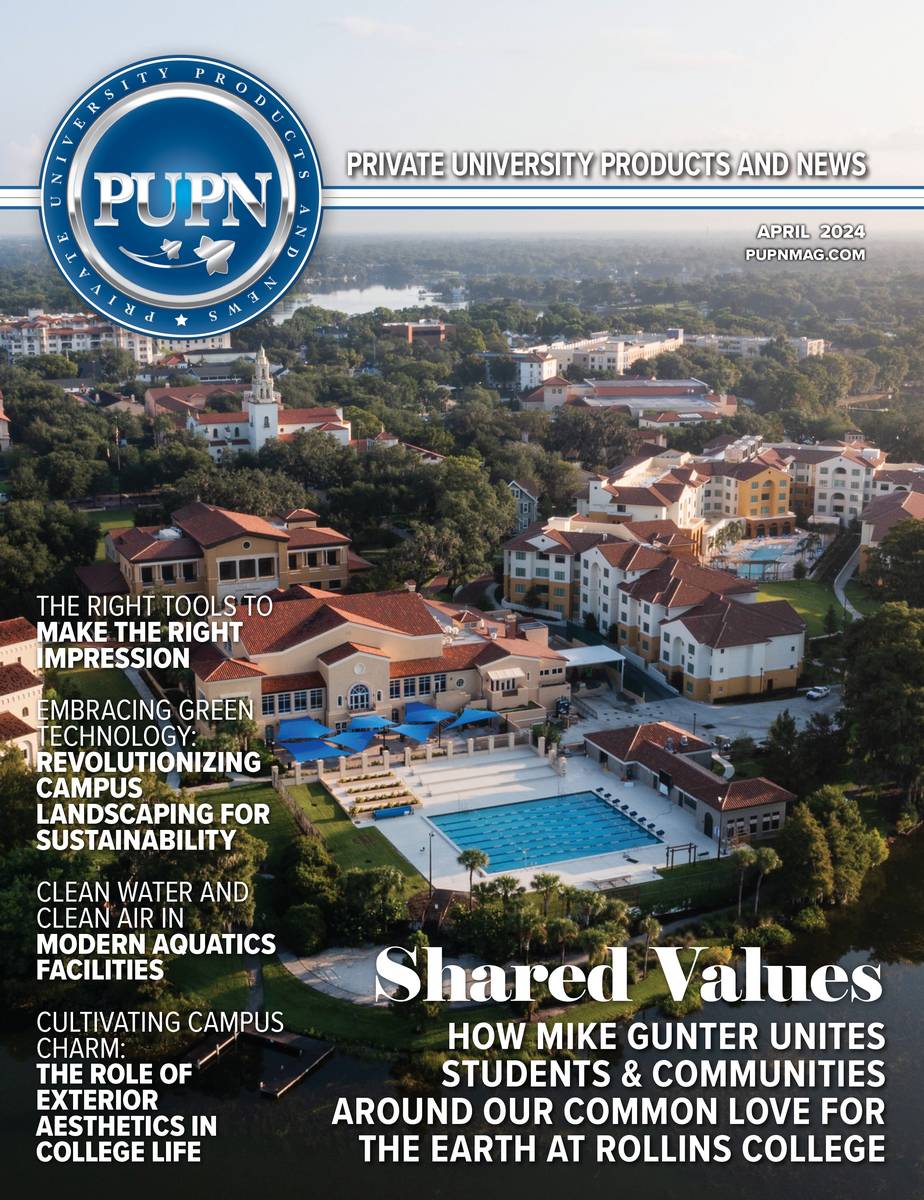Though this recognition offers global confirmation that Winston’s work has a timely relevance, his students at Husson University, many of whom are first-generation or low-income students, have long been connecting with Winston’s message.
Human History Within the Broader Ecology
Winston joined the Husson faculty in 2001 after earning his Ph.D. from the University of Delaware. He teaches a variety of English and humanities courses, from writing, rhetoric, and literature in General Education to upperlevel electives such as environmental writing, literature and medicine, and Irish studies.
Among many other publications to his credit, he authored Joyce and Militarism, a study of James Joyce’s writing within the context of European martial culture and Irish political history. Exploring environmental approaches to Irish literature, Winston’s Fulbright project examines depictions of ecology and environmental perspectives throughout modern poetry and fiction writing from Ireland and Northern Ireland, considering works from a number of social and geographic contexts—rural and urban, Revival and counter-Revival, as well as Anglo-Irish and Gaelo-Irish. He also considers the colonial history of Ireland, developing the project in a way that Bonnie Roos and Alex Hunt have dubbed “postcolonial green.”
Winston explains that discussing the natural and built environments in these works “requires an integrated understanding of sociopolitical with environmental contexts, of the embeddedness of human history within the broader ecology.” This stance does not just inform his scholarship, but his approach to literary studies as an educator. Winston views literature as one way to reconnect humans to nature as we, as Barbara Kingsolver describes, “renew our membership in the animal kingdom.”
Intrigued by a critical approach that works to articulate a connection to the broader, natural world, Winston has long embraced the concept that literature opens people up “to be shown” something, rather than told something. He seeks these connections between life and literature beyond the classroom as well.
Reconnecting to the Environment
Beyond campus, whitewater kayaking offers Winston a personal connection to the environment, an activity that allows for an “immediate and visceral reaction” in addition to providing the balance and perspective that comes from appreciating the landscape.
Winston explains that the more we learn about the natural world, the more we realize many of us have lived lives disconnected from the environment—and there’s likely never been a more pressing time to explore that connection and examine a history fraught with instances of man seeking to own and conquer the natural world.
As students are guided to explore the themes in literature, they are also guided to simultaneously explore the social and political concerns that they struggle with currently. Furthermore, an environmental approach connects powerfully to other disciplines and—perhaps most critically—to the real world.
Environmental approaches move students beyond high theory and the Ivory Tower at a time when it is urgent, Winston argues, for “every academic discipline to explain itself and make itself known and relevant.” In the humanities, in particular—where scholars are far too often forced to explain their worth—the questions Winston explores are not esoteric, but ones with real-world applications, as well as connections and consequences.
The real test, for Winston, becomes connecting with first-year students and their off-page concerns, both social and cultural: demonstrating literary studies as something relevant to students, regardless of their majors or interests.
Bringing Scholarship to Life
Husson University President Robert Clark describes Winston as a professor who “brings his scholarship to life for students.” President Clark acknowledges how fortunate they are at Husson University to have a scholar who is globally recognized but also willing to be an active teacher; Winston also engages with students outside of the academic sphere, Clark mentions, in his role advising student-athletes.
Similarly, Provost Lynne Coy-Ogan has watched Winston develop as a scholar over the years, with the Fulbright serving as the “pinnacle to that success,” but she also emphasizes his commitment to his role as a teacher and mentor, as well as his passion for Maine.
As nearly eighty percent of Husson students are from Maine, this commitment to the state and all it offers has served to deepen those relationships with students from the area. Coy-Ogan has seen Winston help scores of students develop as scholars and learn to appreciate “the role literature plays in their lives and careers.”
Patricia Bixel, Dean of College of Science and Humanities, states that Winston could teach at any number of elite universities, but he has devoted himself to Husson’s students, many of whom are first-generation or low-income students, and “he creates a lot of readers.”
As the Faculty Athletic Representative, he also serves as a wonderful liaison, a mentor who emphasizes the importance of academics but fully understands how committed these students are to their sports as well. Bixel adds that Winston is “an incredibly well-rounded” person, a man with a keen intellect who also manages to be “down to earth”.
Cliff Guthrie, Chair of Humanities and a close friend of Winston’s, praises his colleague’s “high regard for his teaching role,” explaining that teaching is about more than just delivering information. He notes that Winston’s love for James Joyce goes deep, and teaching allows him to express something “that means the world to him.”
Guthrie adds that the state of humanities can be discouraging, so having a colleague who is excelling on such a level has been a boon to all of them in the department.
Husson University student Bree Clayton notes that Winston has a “contagious passion” in the classroom. Though she considers herself science-minded, she first encountered Winston in a first-year composition and rhetoric course and sought him out for a literature course next. She was shocked to find herself inspired to read for enjoyment, even to read poetry—something she could have never imagined before Winston’s classes.
Offering Validation and Opportunity
For Winston, the Fulbright has offered a “wonderful validation from the wider world,” which helps him stay connected to an audience beyond the campus walls. As part of his research, Winston is focusing on poet Seamus Heaney and novelist John McGahern. He will have the chance to visit both writers’ home regions and other locations from their writings.
In addition to visiting archives to study manuscripts, drafts, and other materials and correspondence, Winston will have the experience of meeting with other Irish scholars, poets, writers, and critics—all toward his efforts “to help students better understand Irish literature, Irish studies, modernism and an environmental approach to literature.”
Winston sees the Fulbright Scholar opportunity as vitally important to every academic community, representing the best of what university life can offer, both nationally and globally—a program that encourages building bridges and forging connections that go beyond social, economic, or cultural barriers.










